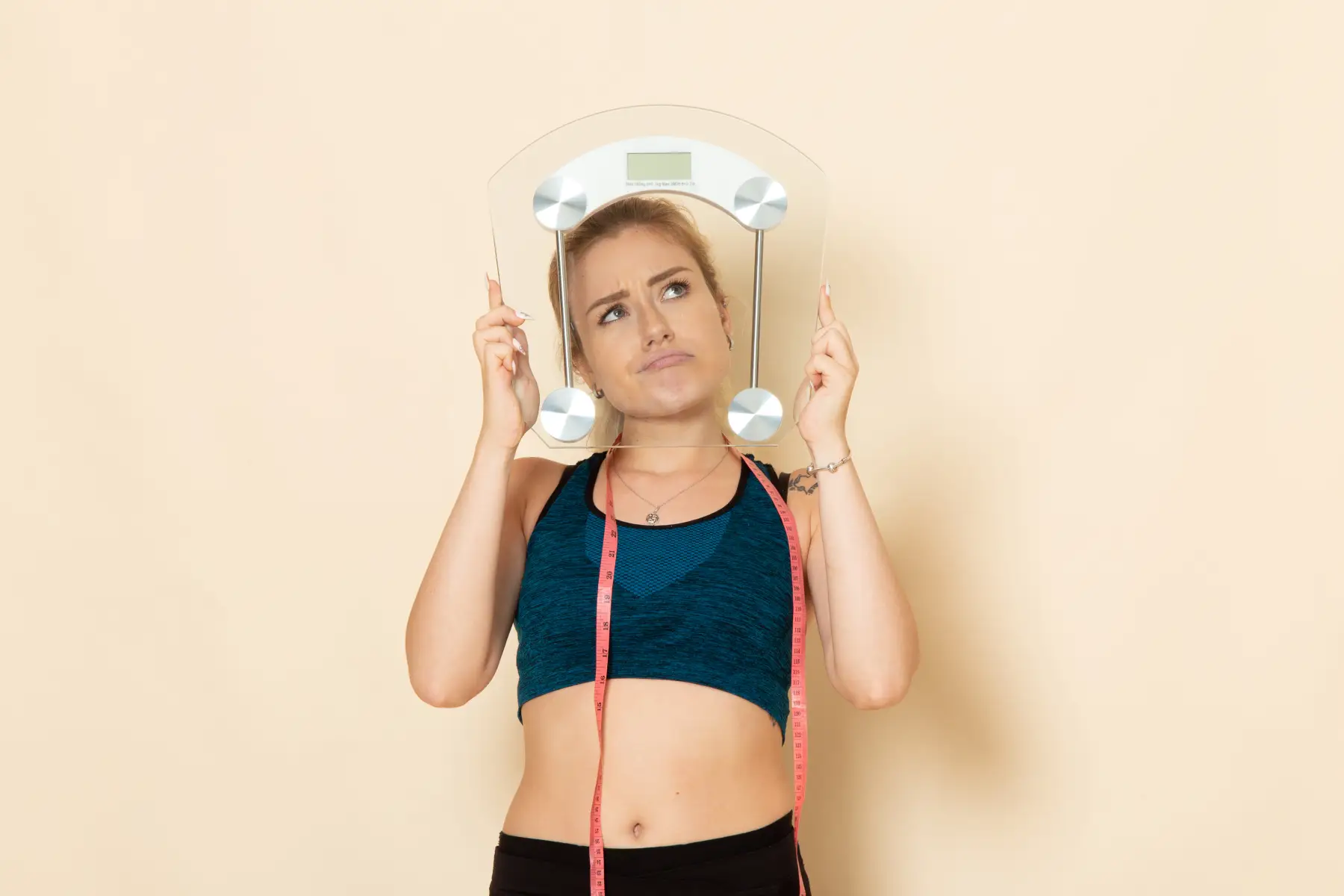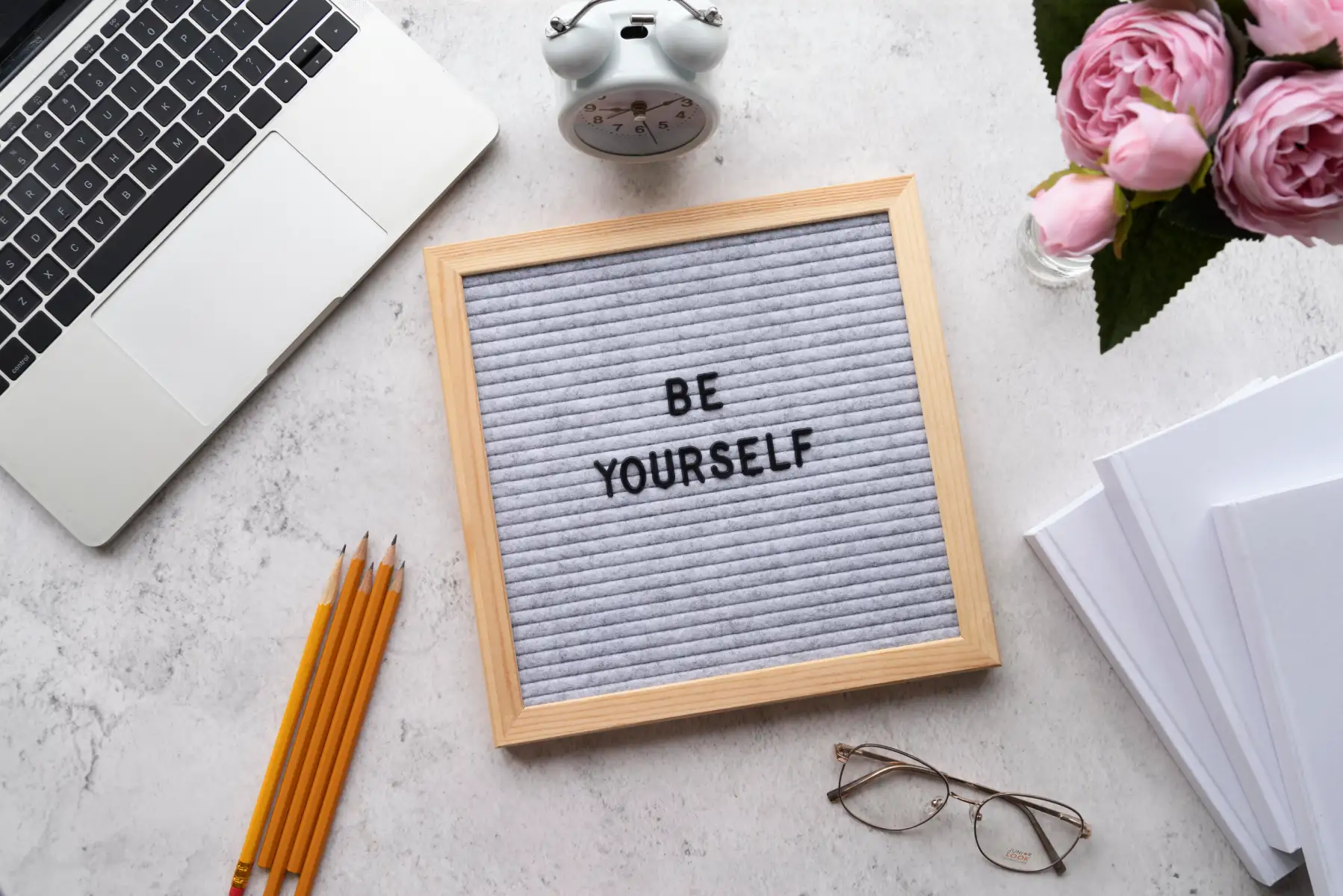Introduction to Body Image
Body image is the perception we hold about our physical appearance, encompassing how we see ourselves, how we think others see us, and how we feel about our bodies. A healthy body image promotes self-confidence and mental well-being, while a negative body image can lead to reduced self-esteem, anxiety, and even serious mental health challenges like eating disorders or depression.
Self-esteem and body image are closely linked—how we perceive our bodies plays a vital role in shaping overall self-worth. In a world dominated by unrealistic beauty standards and societal pressures, many individuals experience dissatisfaction with their appearance, contributing to a cycle of negative self-esteem.
Understanding the connection between body image and self-esteem is essential for breaking free from these pressures and learning to embrace a positive relationship with your body. In this whitepaper, we will explore how societal influences shape body image, the impact this has on self-esteem, and actionable strategies for improving both body image and mental health.
Societal Influences on Body Image
Society plays a significant role in shaping how we view our bodies. With beauty ideals perpetuated by media, advertising, and social norms, individuals are often pressured to conform to narrow and unattainable standards. These societal influences contribute heavily to negative body image and related self-esteem issues.
1. Unrealistic Beauty Standards
- Media and Advertising: From airbrushed magazine covers to heavily filtered social media posts, images in the media often depict flawless and unattainable bodies. These representations create a distorted perception of what “ideal” beauty looks like.
- Celebrities and Influencers: Actors, models, and influencers often showcase idealised versions of themselves, amplifying the belief that certain body shapes or sizes are more desirable than others.
- Gendered Expectations: Women face pressure to achieve slim, toned, or curvy figures, while men are often expected to have muscular, athletic physiques. These binary expectations contribute to body dissatisfaction across genders.
Unrealistic beauty standards often lead individuals to compare themselves unfavourably to others, creating a damaging impact on body image and, subsequently, self-esteem.
2. Weight Stigma and Fatphobia
- Body Shaming: Whether explicit or subtle, comments about weight or appearance can profoundly affect someone’s confidence and relationship with their body.
- Public Messaging About Weight Loss: Diet culture and “before-and-after” transformations contribute to the belief that worth is tied to size or weight.
Weight stigma promotes the idea that only slender or “fit” bodies are valuable—an idea that can drastically lower self-esteem for anyone who doesn’t conform to this narrow standard.
3. Social Media Pressures
Social media has become a cornerstone of modern life, but it brings unrealistic comparisons and pressures that can negatively affect body image.
- Highlight Reels: Platforms like Instagram show curated snapshots of other people’s lives, promoting an illusion of perfection.
- Filters and Editing Apps: The widespread use of filters and editing tools creates a false sense of beauty, leading people to feel dissatisfied with their natural appearance.
Research has shown that frequent exposure to “idealized” and highly modified body images on social media correlates with lower self-esteem, increased anxiety, and body dissatisfaction.
4. Cultural Standards and Norms
Cultural norms about body shape and size vary across societies, but many cultures continue to amplify the notion that certain appearances are more valued.
- Cultural Traditions: Some cultures emphasise thinness, while others idealise curves, but the pressure to conform to these standards can still create feelings of inadequacy.
- Ethnic Underrepresentation: Many beauty standards are based on eurocentric ideals, which often exclude traits associated with other ethnicities, contributing to dissatisfaction for individuals who don’t see themselves represented.
Societal pressures make it difficult to develop a healthy perspective on body image, but challenging these ideals is crucial for improving self-esteem and overall mental health.
Improving Body Image and Self-Esteem
While societal pressures weigh heavily on body image and self-esteem, there are ways to push back against these influences and develop a healthier relationship with your body. Below are actionable strategies for improving body image and building self-confidence.
1. Practise Self-Compassion
Learning to practise kindness toward yourself is key to overcoming negative thoughts related to your body.
- Acknowledge Your Feelings: Accept that it’s normal to feel insecure sometimes, but work on shifting your inner dialogue from criticism to kindness.
- Reframe Negative Thoughts: Challenge harmful beliefs, such as “I’m not attractive,” with affirming statements like “My body deserves care and respect.”
- Be Patient: Remember, improving body image takes time, so celebrate small steps along the way.
Self-compassion helps to counteract the internalised shame or guilt that may come with poor body image.
2. Focus on What Your Body Can Do
Shifting attention from how your body looks to what it can accomplish helps build gratitude and self-appreciation.
- Celebrate your body’s strength, endurance, or flexibility with physical activities like yoga, walking, or dance.
- Recognise that your body supports you through life’s challenges and accomplishments, beyond physical appearance.
Understanding that your body’s worth is not tied to aesthetics can empower greater confidence and self-esteem.
3. Reduce Social Media Comparisons
Minimising time spent on social media or changing how you interact with digital content can have significant benefits for your body image.
- Curate Your Feed: Unfollow accounts or individuals who consistently promote unrealistic beauty standards. Instead, follow body-positive or inclusivity-focused creators.
- Take Breaks: Limit time on social media to avoid falling into harmful comparison traps.
- Focus on Authenticity: Engage with content that encourages self-love and portrays diverse, unretouched bodies.
Becoming mindful of how social media affects your perspective can help reduce unrealistic comparisons and improve your self-image.
4. Surround Yourself with Positivity
Your environment and relationships can greatly influence how you think about yourself.
- Build friendships with people who celebrate you for who you are, not how you appear.
- Seek out body-positive or mental health support communities that focus on encouragement and inclusivity.
A positive network reinforces self-worth and reminds you that your value is not based on superficial metrics.
5. Challenge Societal Beauty Standards
Taking a critical lens to societal expectations can empower individuals to reject damaging norms.
- Educate yourself on how industries like advertising and fashion profit from unattainable ideals.
- Advocate for diversity and inclusivity in media and brands by supporting companies or campaigns that promote realistic representations of beauty.
- Remind yourself that societal standards are artificial constructs—they do not define your worth.
By questioning the validity of cultural norms, you can foster greater self-acceptance and resilience.
6. Practise Gratitude and Body Positivity
Gratitude can help refocus attention on the strengths and capabilities of your body, rather than perceived flaws.
- Focus on small practices of mindfulness, like thanking your body for waking up each day or allowing you to enjoy a walk outdoors.
- Create a daily gratitude journal to foster positivity and kindness toward yourself.
Body positivity is about shifting the focus from criticism to celebration, encouraging healthier self-worth.
7. Seek Professional Help If Needed
If body image struggles persist or start affecting your mental health, seeking support from a counsellor or therapist can help.
- Cognitive Behavioural Therapy (CBT): CBT techniques can help challenge negative thoughts related to appearance and replace them with positive, constructive beliefs.
- Support Groups: Joining a group centred on body positivity or mental health can provide additional encouragement and shared experiences.
Professional mental health support offers guidance to overcome issues tied to body image and self-esteem.
Conclusion
Body image has a profound impact on self-esteem, especially in a society that often prioritises appearance over the value of diversity and individuality. Unrealistic beauty standards, weight stigma, and social media all contribute to a distorted self-perception, leading many to struggle with body dissatisfaction and reduced confidence.
However, by reframing negative beliefs, challenging societal norms, and practising self-compassion, individuals can take meaningful steps toward improving body image and self-esteem. It’s essential to celebrate diversity, focus on what our bodies can do, and cultivate gratitude for the unique traits that make us who we are. When needed, seeking professional support can be a powerful step toward healing and growth.
A healthy body image isn’t about striving for perfection—it’s about embracing who you are as you are. By fostering a positive relationship with your body and prioritising your mental well-being, you can build the confidence and resilience needed to live a happier, healthier life.










